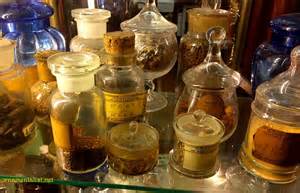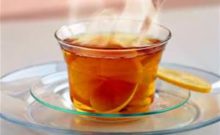 The Versatility of Home Remedies
The Versatility of Home Remedies
There are many different ways to administer home remedies depending on the intended purpose and the ingredients used. Some people prefer teas while others like to get right down to business with a tincture. Still others prefer salves and balms. Depending on your application preference or geographical location there are a number of different choices to make when deciding on your home remedies.
What’s the Difference Between Tinctures, Salves and Teas?
Tinctures are made by taking an herb or medicinal flower and soaking it for a time in a carrier liquid. Alcohol is the most common carrier liquid but some people prefer vegetable glycerin. Often a person may choose glycerin when making a tincture that will be administered to children because it is sweet and doesn’t have the kick that alcohol can have. Salves are made by using essential oils and medicinal plants. There is usually a carrier oil that is used to help balance the pH and marry the ingredients together. Almond oil is one of the most common carrier oils as very few people seem to have sensitivities to it. Almond oil also keeps its integrity longer without having to put it in the fridge. Balms are pretty much the same as salves, only thicker. You can use coconut oil, lanolin, or a combination of oils to make a thicker balm. Salves and balms are used topically. You may find that many people use the terms salves and balms interchangeably. Teas are self-explanatory. By soaking herbs and medicinal flowers in hot water for a specific amount of time you can make an infusion tea. This can be very soothing if you are making a remedy for a cold, stomach ache, or headache. The warmth alone can be beneficial and comforting. This form of home remedy takes a little bit more time to take effect than a tincture, which hits your blood stream within seconds.
Keep Them Clean
Regardless of what you are making, you want your ingredients to be as pure as possible. You should follow the rules of wildcrafting and when possible wash your herbs and plants with a food wash before processing them. No matter how remote the area you found your medicinal plants in, they could still be vulnerable to cross-contamination. Air pollution, acid rain, and animals can carry pollutants over hundreds of miles. Never just assume your plants are 100% clean. However, don’t let this discourage you from learning to make your own remedies. Many people find home remedies to be more effective than pharmaceutical remedies – plus they often have fewer side effects! Next week I’ll have a few simple recipes for you to try. Always check with your doctor before trying any home remedies.
Applications & Resources for Tinctures
- Check out Mountain Rose for more information on tinctures and where to find the herbs you need.
- Go to Wellness Mama for some simple guidelines and recipes
- Read more at Herb Lore

